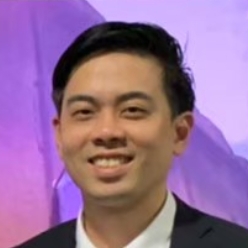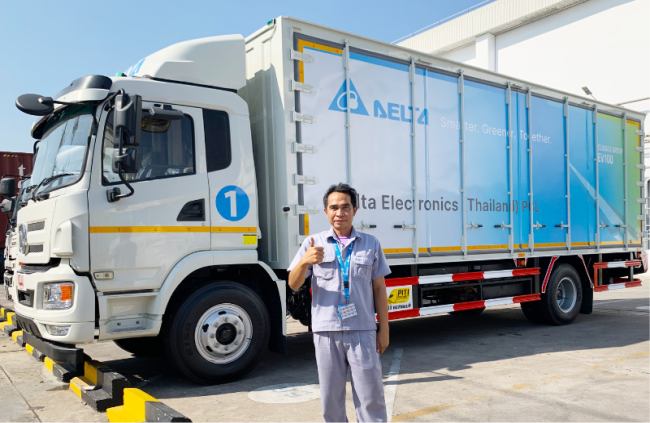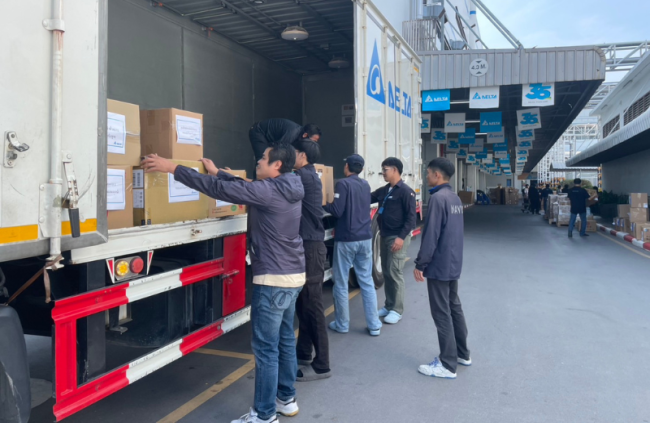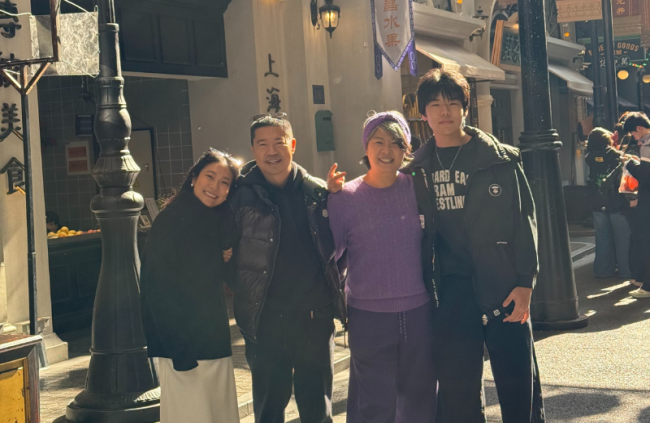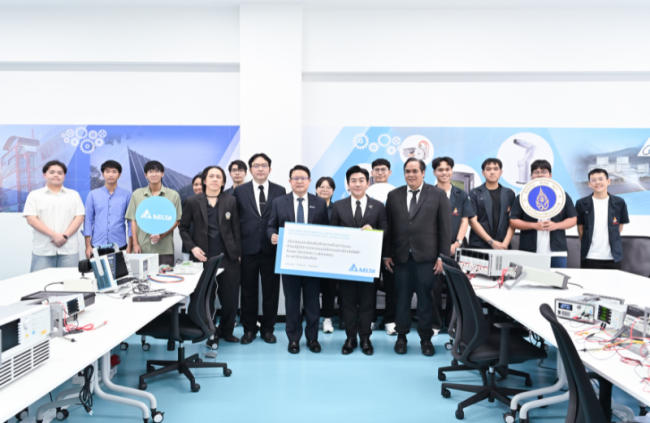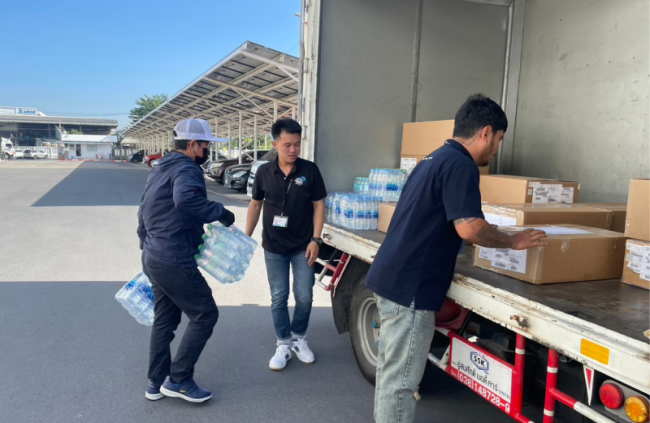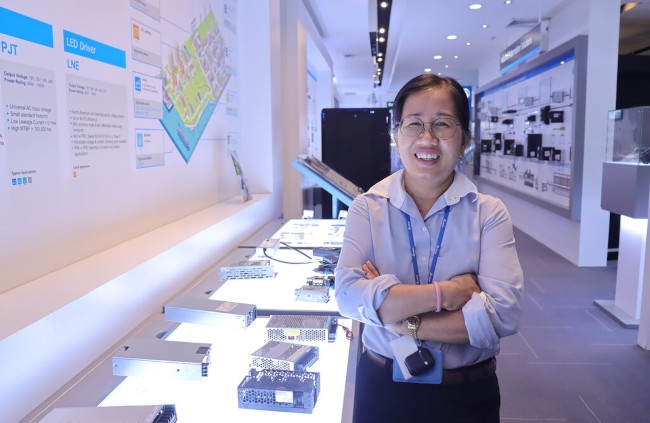Always Add Value to Support our Team: DET GPA Senior Director’s Leadership Lessons for Sustainable Growth
By David Nakayama - Published May 24, 2023
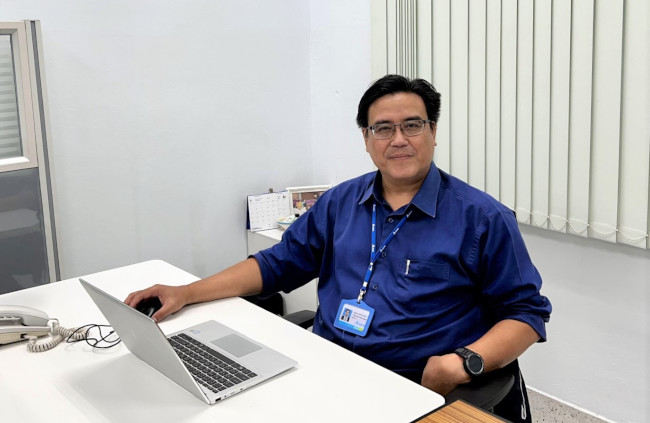
Interview with Mr. Yongyuth Pakdoungjan, Delta Senior Director of Government and Public Affairs Department
Text by David Nakayama, DET Corp Comms
Photographs by Kreethakorn Sangkhakul, DET Government and Public Affairs
Samutprakarn, Thailand, May 26, 2023- The leadership and hard work of thousands of Thai men and women is an undeniable part of Delta Thailand’s ongoing growth story. I recently had a talk with one of our veteran indigenous Thai leaders Mr. Yongyuth Pakdoungjan, Delta Senior Director of Government and Public Affairs Department, about his long career supporting our local workers and advocating for Delta.
Today we hear about his accomplished 25-year career at Delta Thailand, from HR to Government and Public Affairs. His story is one of step-by-step growth into a role as a Thai leader driving success together with an inter-generational local team.
You have a long career with Delta Thailand. Can you please share with us how you joined Delta Thailand and your early career?
I’m a local born right here in Samutprakarn Province and I studied up to high school here. Since grade school, I always took on leadership roles like class head and president. In high school, I joined a provincial junior volleyball team so I would get into the athletic quota for universities during entrance exams.
I studied business management at Kasetsart University and after graduating I began working at a local accountancy firm for one year in Bangkok. However, the terrible traffic each day made me swear to never work in the city and I decided to join Delta Thailand because it is closer to my home. In 1999, I started at Delta as a Foreign Affairs Officer in the Human Resources Administration (HRA) Department.
Like many of our Delta veterans, you got a lot of growth opportunities and responsibility from our leaders. How did you arrive at your current role as Delta Senior Director of Government and Public Affairs Department?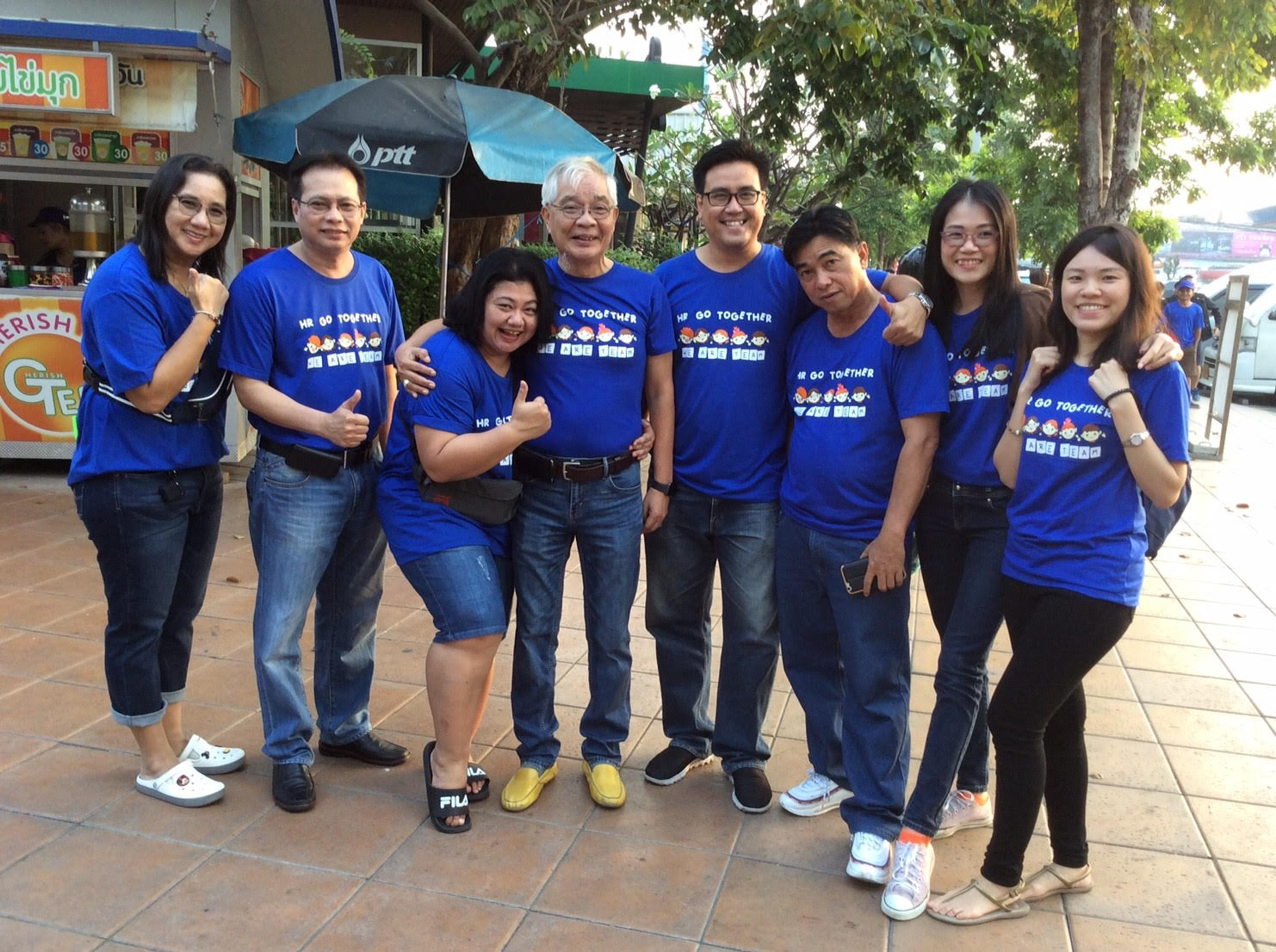 When I joined Delta, my boss Mr. Anusorn rotated me to all HRA functions from General Affairs to Transportation then Recruitment and Government Relations, which was under HRA at the time. I learned everything about HR and Public Affairs while slowly moving up from Officer to Senior Officer then Section Head to Manager and Senior Manager and so on until I reached my current role.
When I joined Delta, my boss Mr. Anusorn rotated me to all HRA functions from General Affairs to Transportation then Recruitment and Government Relations, which was under HRA at the time. I learned everything about HR and Public Affairs while slowly moving up from Officer to Senior Officer then Section Head to Manager and Senior Manager and so on until I reached my current role.
While it very much depends on your boss, I feel good performers should have a step-by-step career progression with growth in roles and responsibilities. An important way leaders add value to Delta is by helping people reach their full potential which multiplies the realized value for Delta. So, people with skills and leadership ability can spend 2-3 years in each position and progressively step up to bigger challenges for their own careers and our company’s growth.
For example, at the time I joined Delta, we had a lot of great leaders so the progression from officer to manager was very fast and our company growth was good too. Today we still have some senior Thai managers at Delta Thailand from this period.
Why is Government Public Affairs important for a large company, and what are some key ways your team contributes to Delta’s success in Thailand? This function exists in many industries and many large companies. The name my vary, like in India it might be called Government Liaison Department, but the aim is always to cultivate relations with the government for mutual benefit. The government can support investors and companies to do business which in turn provides jobs and revenue that boosts the domestic economy.
This function exists in many industries and many large companies. The name my vary, like in India it might be called Government Liaison Department, but the aim is always to cultivate relations with the government for mutual benefit. The government can support investors and companies to do business which in turn provides jobs and revenue that boosts the domestic economy.
We can use government relationships to make business opportunities for the company. For example, if we’re trying to get a contract with a State Owned Enterprise (SOE) instead of a bottom-up strategy of sales officers and purchasing negotiating, we can directly present the project to a government official on the SOE’s Board of Directors and arrange a meeting with a company business director in a top-down approach.
Another key role we play is in obtaining incentives for the company. In Thailand, the Board of Investment (BOI) is the only organization that gives tax exemptions for import tax, duty tax and corporate income tax. Corporate income tax alone is 20% of a company’s profit so this is significant to our profitability and overall success.
Finally, we represent the company to build up our public image by getting involved in government-related ESG activities that cover everything from energy to education and CSR.
What are some of the biggest milestones that you were a part of at Delta?
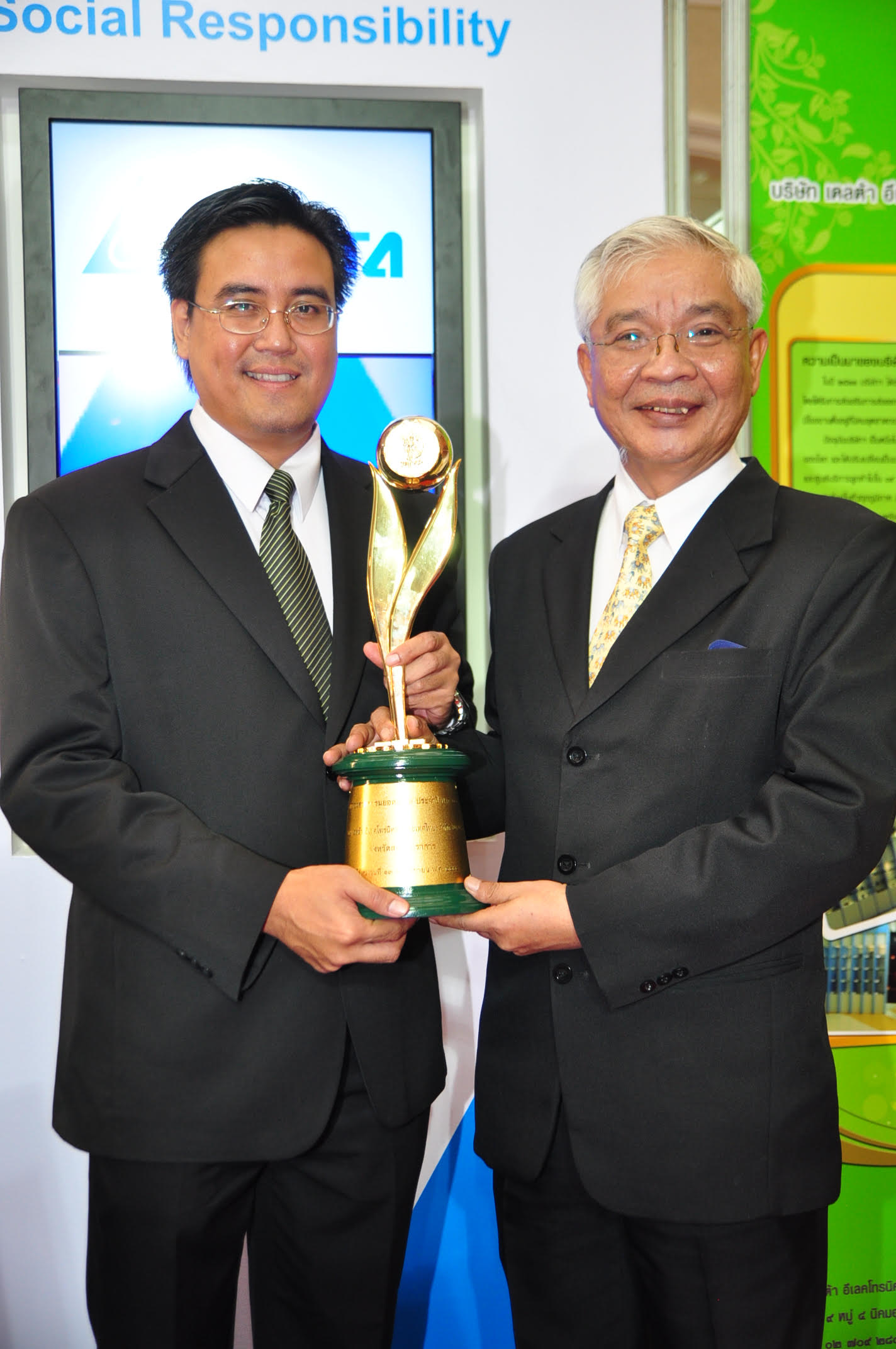
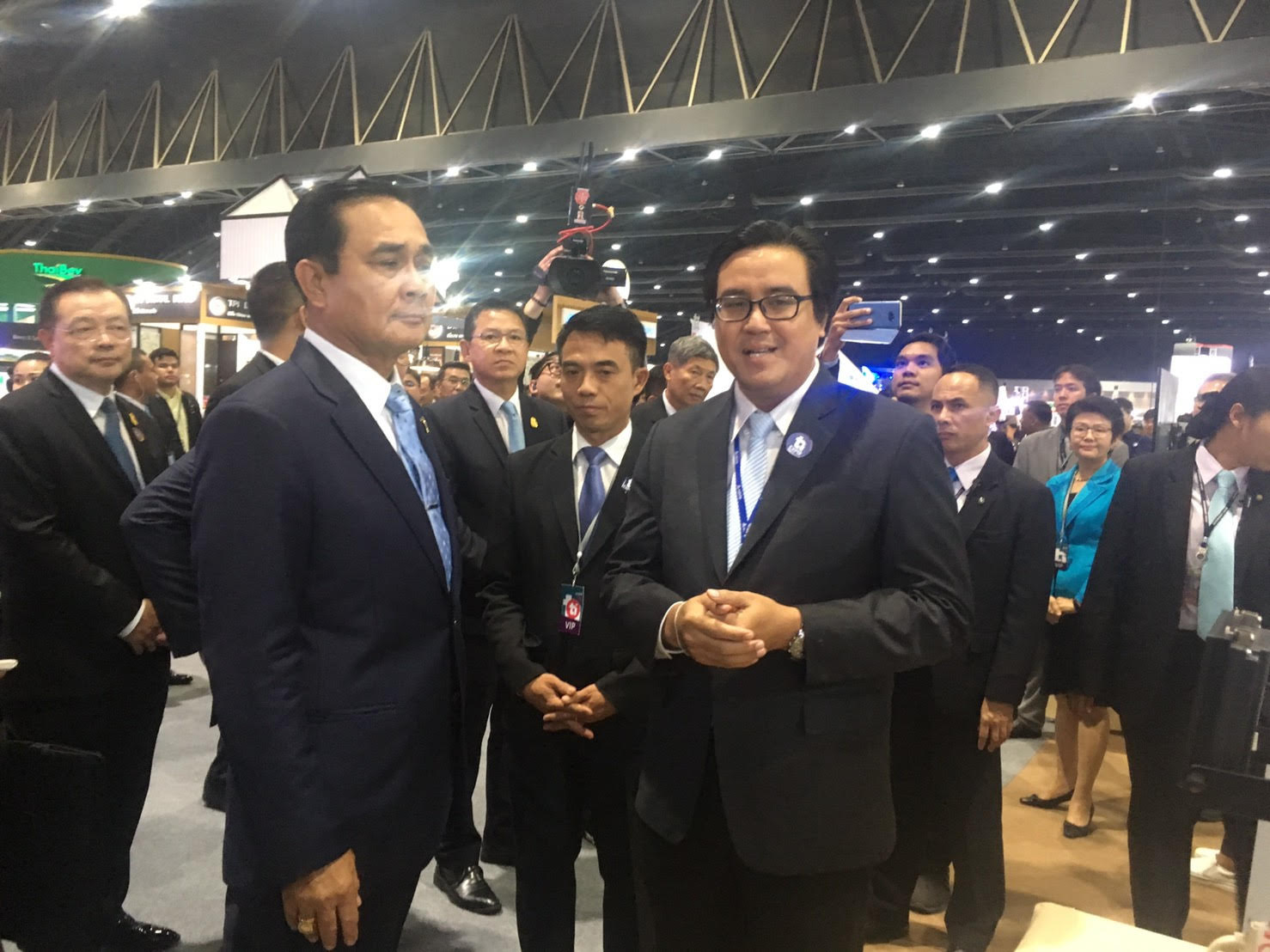
I am very proud of our team’s work in the past 2 years to convince the BOI to reform tax regulations. These changes support all foreign companies in Thailand and help increase foreign investment in the country. We also joined forces with other companies and associations to seek this support from the government.
Another thing I’m very proud of is helping Delta win the 2012 PM Best Industry Award which is the best of the best in the PM awards. We beat all the other big companies competing for the top award that year and we proved that Delta is an outstanding company that can compete and win in Thailand. Our Founder Mr. Bruce Cheng personally thanked me for helping us win the award and that recognition made me so happy and proud.
What are the top priorities for Delta in investing in operations in Thailand, and why is Thailand a good place in Southeast Asia to expand our operations?
With all the geopolitical instability in the world today, Thailand is a stable location, especially in Asia. Our priority is to improve the readiness of Thai people to work in more advanced manufacturing with the latest technology.
This is why Delta pays a lot of attention to improving education in Thailand. Seven years ago, our former President Mr. Dick supported us to start the Delta Automation Academy and today we have seven partner universities and a lot of engineers at Delta from our first partner university King Mongkut’s University of Technology (KMUT).
What are the most challenging parts of your work, and how do to help your people reach their full potential?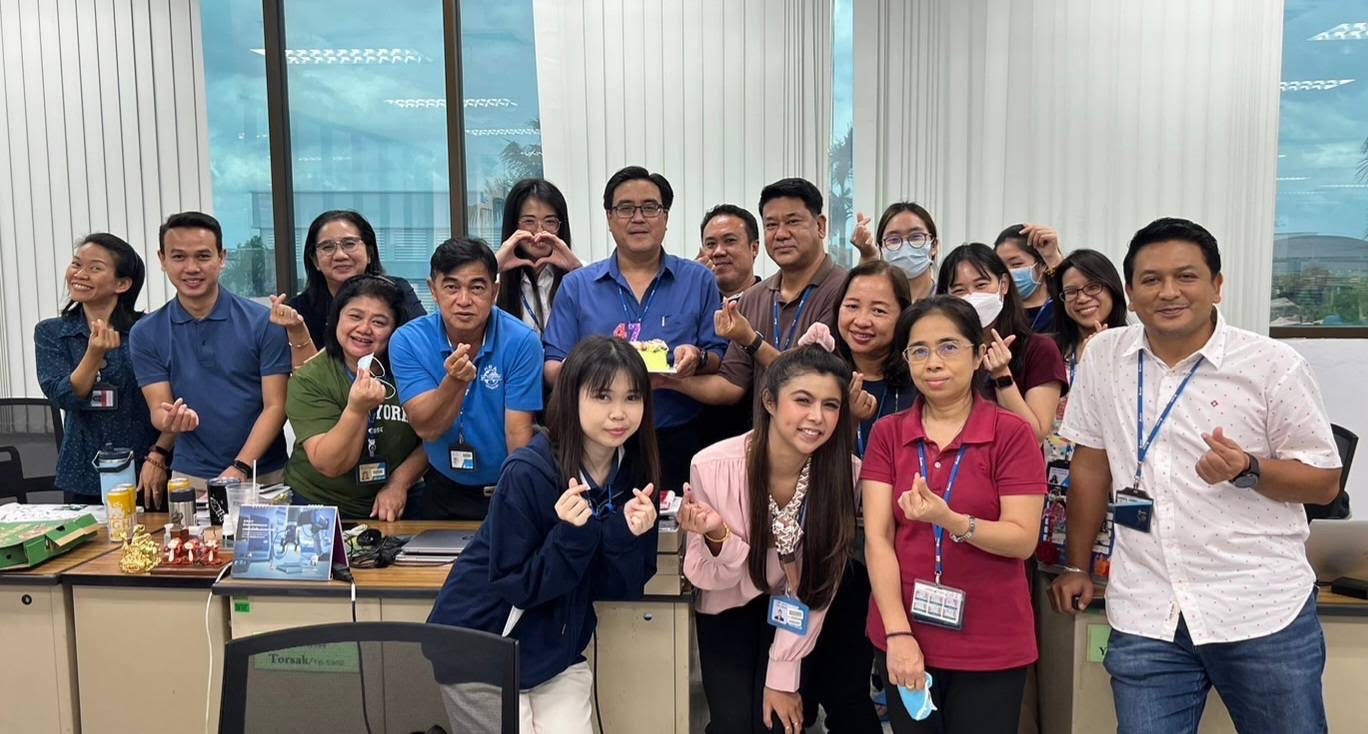 On our GPA team, we have different generations, and I must manage each accordingly. When I joined I was a young guy that started working with my seniors and today the roles are reversed and I am now a mentor to the next-gen talent and lead them along with my colleagues from the early days.
On our GPA team, we have different generations, and I must manage each accordingly. When I joined I was a young guy that started working with my seniors and today the roles are reversed and I am now a mentor to the next-gen talent and lead them along with my colleagues from the early days.
I feel the new generation are very fast and well-educated while our senior members may take more time but are very experienced. In GPA experience is very important and we also need the energy of our young members to bring us up to speed for the future.
Many departments and functions in the manufacturing sector use the buddy system to pair a senior with a junior member for training and development. However, if your senior buddy is good it can be heaven and if not it can be real hell for juniors lol. That’s why I prefer to create a system of knowledge sharing from seniors to juniors and vice versa in a two-way communication instead of the buddy system.
At Delta, we often talk about the importance of ESG so what does "Sustainability" mean to you and your team?
Our GPA function is very related to supporting improvement in the environment social and governance or ESG performance of our company. If we talk about sustainability, I believe this means always evolving but in Thailand, we seemed to have stagnated in some areas like education.
Our Delta Energy Education Project (DEEP) and Delta Automation Academy aim to help the government and educational institutions to upgrade their teaching methods, curriculum and classroom/lab equipment to meet current and future business requirements.
We also constantly work with our communities because our communities support us and protect us even when we fail. For example, many years ago we had a tragic accident but with the support of our community, we were able to overcome this crisis.
Although governments and policies may change, Delta’s commitment to supporting Thailand’s development remains the same. How do you adjust your strategy and tactics to help Delta achieve a win-win situation with all stakeholders?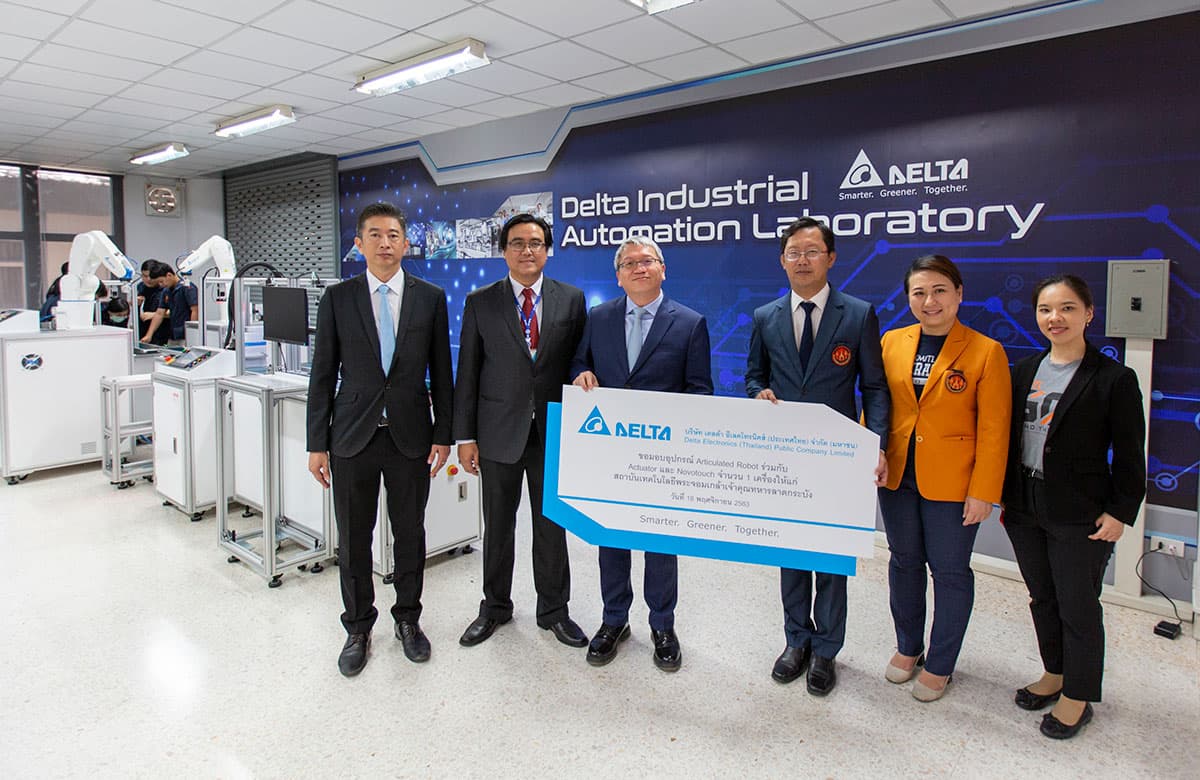
As in our Delta Automation Academy program, we try to use a pull strategy instead of a push strategy. Even when governments change, we can still work together because when the current administration in office thinks about innovation, technology and efficient education for Thailand they will think about how Delta. This is because Delta had always supported not just in sponsorship but also in many meaningful ways that create real long-term positive impact for the society.
How do you balance your career and personal life and what do you like doing when not working?
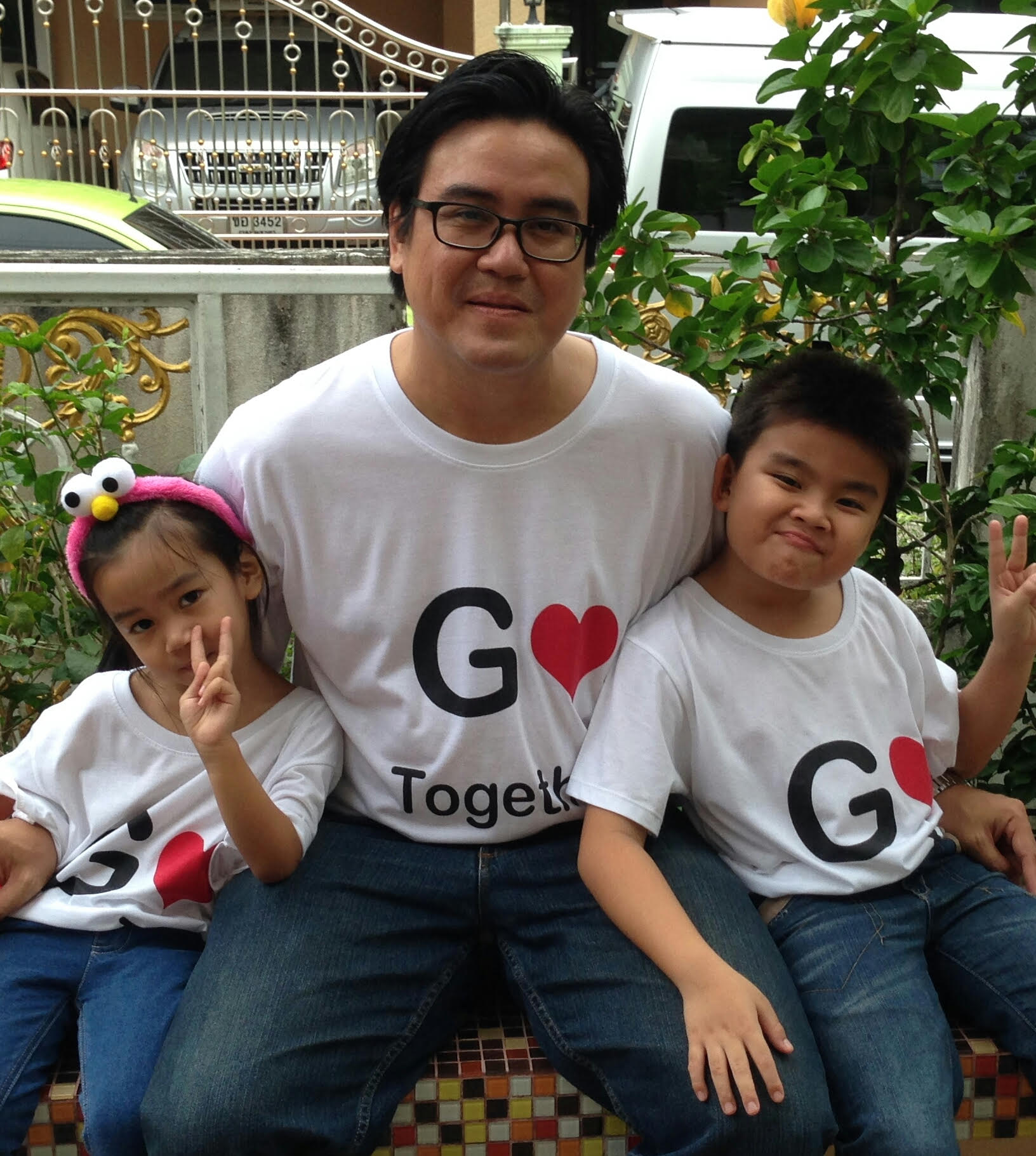 I have to give credit to my wife as if we are a football team, she is my defender while I am the forward. She is a great housewife who helps me look after our kids, cook and take care of our home. I have a son and a daughter and we enjoy sports and music together.
I have to give credit to my wife as if we are a football team, she is my defender while I am the forward. She is a great housewife who helps me look after our kids, cook and take care of our home. I have a son and a daughter and we enjoy sports and music together.
I always liked creative arts and music class since grade school and I enjoyed advertisement studies most in university. At home, I play guitar and my son plays drums. In fact, he won No. 2 in a national competition, and he is a musical genius. Every instrument he tries he plays well. My daughter also sings in a school chorus so sometimes I think I should be a musician with my family band and not an office worker.
Finally, is there anything you would like to share with your Delta colleagues around the world?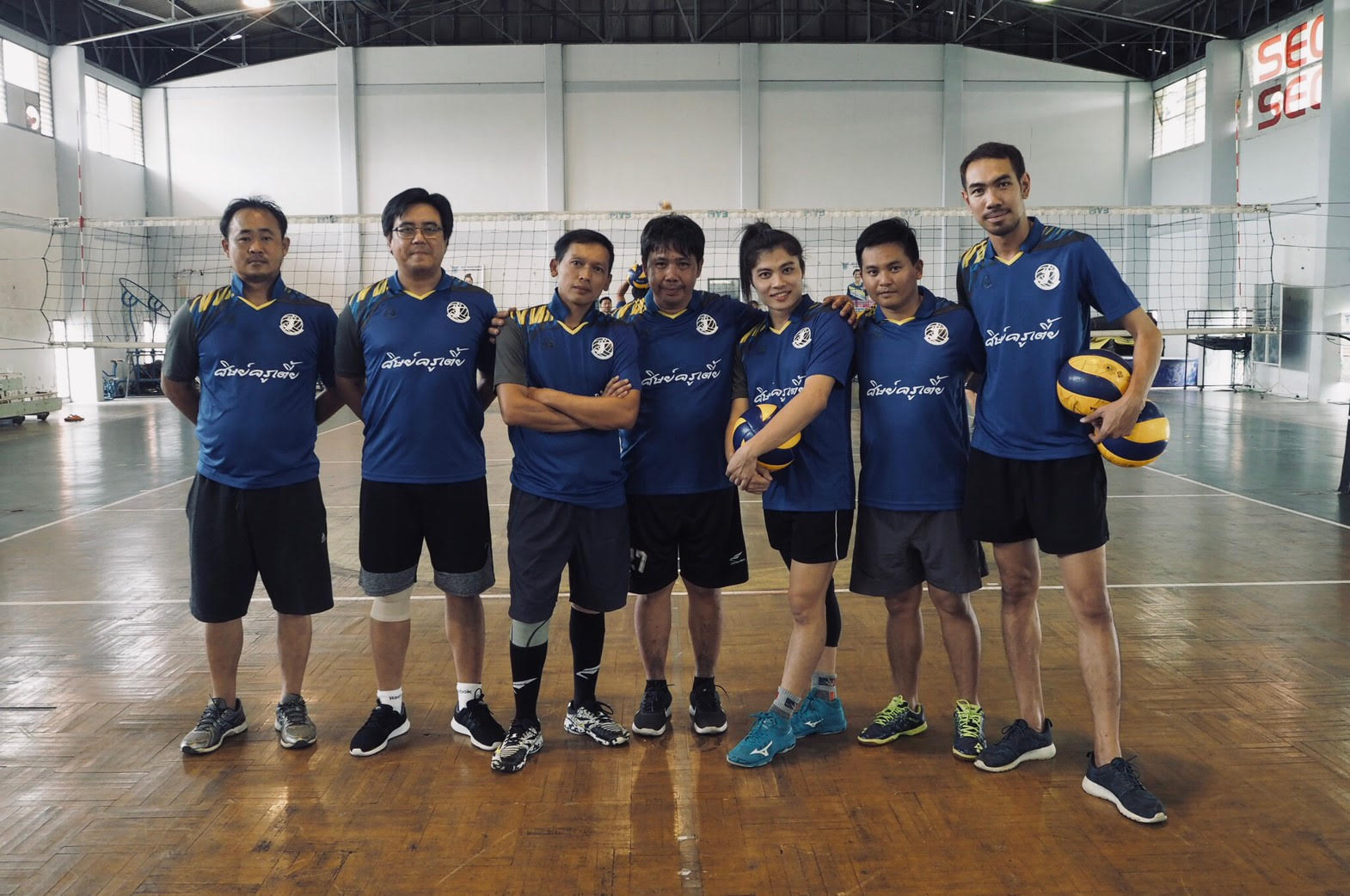 In almost 25 years at Delta, one thing I have seen is that we are different from other companies in Thailand, and we keep changing all the time. Our business and strategy must change with the times for continued sustainable growth.
In almost 25 years at Delta, one thing I have seen is that we are different from other companies in Thailand, and we keep changing all the time. Our business and strategy must change with the times for continued sustainable growth.
As professionals, we must think about a growth strategy that supports the future of Delta and the careers of individuals. At Delta, we have different generations and nationalities. Thai, Taiwanese and other expats each have their own characteristics, strengths and leadership potential to tap into for the benefit of Delta.
Adding value is very important to your work life. I believe that if you add value, you will always be important to Delta. I always strive to be sincere and do what I say with my boss, my staff and my friends. All my life since I was a volleyball player, I succeeded with teamwork.
Finally, throughout my life, I have always seen the importance of teamwork and supporting each other to succeed. In the end, we win together, and we lose together as ONE Delta.
